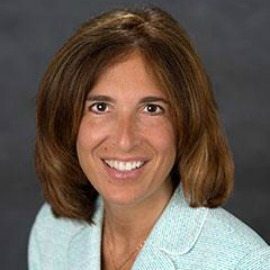
This three-part series features new Thomas Jefferson High School for Science and Technology Principal Dr. Ann Bonitatibus. She will be the keynote speaker for the fifth annual 2018 K-12 STEM Symposium on April 14 at the Nysmith School, in Herndon, Virginia.
Some say there’s a need to push the workforce of tomorrow into deeper learning in science, technology, engineering and math. Dr. Ann Bonitatibus, principal of Thomas Jefferson High School for Science and Technology and a keynote speaker for the fifth annual K-12 STEM Symposium, believes in a different approach.
“We encourage parents and teachers to allow children the opportunity to organically find and pursue their passions,” she said. “When we find our students have an interest or an aptitude in an area, it’s our responsibility to find ways to nurture it and help students pursue those passions. If students change their minds along the way, or find an interest in the arts or humanities, we support our children in these new interests.”
Bonitatibus is among several individuals who will speak at the symposium April 14 at the Nysmith School in Herndon, Virginia. The all-day event is expected to draw more than 4,000 students, parents, educators and executives from the corporate, government, academic and nonprofit sectors. There will also be more than 50 exhibitors and at least 20 student showcases.
Before coming to Thomas Jefferson, Bonitatibus was superintendent of the Conejo Valley Unified School District in Thousand Oaks, California, from 2015 to 2017. Before that, she was in Maryland’s Frederick County Public Schools for nearly five years as an assistant superintendent for secondary schools and for more than three years as a chief operating officer.
She holds a master’s degree in educational leadership and administration from McDaniel College and a doctorate of education in organizational leadership from the University of Pennsylvania.
“I’m fortunate my experiences have traversed business and operations, all with an educational foundation that lends itself well to the creative and innovative thinking at TJ,” she said.
She believes adults who work with children must be flexible and adaptive to meet the needs of evolving industries students will join in the future.
“Many of us went to college and changed our majors along the way,” she said. “We have to remember that developmentally children will go through many different interests, so we must capitalize on teachable moments and support children in pursuing their passions.”
Many people perceive STEM and the humanities as being mutually exclusive, she said. That’s led to some groups emphasizing STEAM (science, technology, education, art, science) or even STREAM, which plays on the idea of the three “Rs” of reading, writing and ‘rithmetic. That approach causes the idea of STEM to lose focus, she said.
“What we know about today’s educational models and what business and industry will be looking at in the future is that multidisciplinary approaches are going to be needed to identify and solve the challenges in our future,” she said. “STEM recognizes the importance of science, technology, engineering and mathematics. Our job as educators and business and industry leaders is to show the broad application of those skills. These skills can be applied to the humanities. We can look at computational modeling for voter registration. We can look at engineering in the performing arts for musical composition, and lighting and sound. There are many STEM applications in the humanities that we are able to explore and apply now that weren’t envisioned in the same way 30 years ago.”

